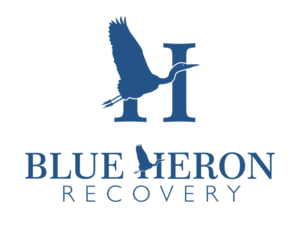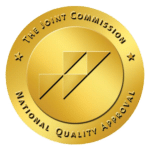Addiction is a complex condition that often intertwines with various mental health issues. Dialectical Behavior Therapy (DBT) has emerged as an effective treatment approach for addressing addiction, particularly in individuals facing emotional dysregulation and impulse control challenges. In the realm of addiction treatment, the incorporation of innovative and comprehensive therapeutic approaches is pivotal. Dialectical Behavioral Therapy (DBT) has emerged as a transformative method, offering individuals grappling with addiction a holistic path towards recovery.
What is DBT?
Developed by Dr. Marsha M. Linehan in the late 1980s, DBT originally aimed to treat individuals with Borderline Personality Disorder (BPD). However, its success in addressing emotional regulation and interpersonal difficulties led to its adaptation for treating various other conditions, including addiction.
Core Principles of DBT
DBT operates on several core principles:
- Dialectics: Encourages the integration of seemingly opposing viewpoints, fostering balance and acceptance of conflicting thoughts or emotions. This approach helps individuals understand the nuances within their experiences without resorting to extreme judgments.
- Mindfulness: Focuses on being present in the moment without judgment. It assists individuals in recognizing and managing their thoughts, feelings, and sensations as they arise, enabling better control over impulsive behaviors. Teaching individuals to stay present, observe thoughts and emotions non-judgmentally, and cultivate self-awareness
- Distress Tolerance: Equips individuals with coping strategies to manage intense emotions without resorting to harmful behaviors. This aspect of DBT teaches healthy ways to tolerate distressing situations without exacerbating them. Promoting resilience and adaptive coping mechanisms.
- Emotional Regulation: Aims to identify and regulate emotions effectively. Individuals learn to recognize, understand, and manage their emotions, reducing the reliance on substances as a coping mechanism, reducing impulsive reactions and fostering emotional stability.
DBT in Addiction Treatment
In addiction treatment, DBT integrates these core principles into a structured therapeutic approach tailored to the unique needs of individuals struggling with substance abuse. DBT’s unique approach encourages individuals to embrace acceptance of their current situation while striving for change. It fosters a non-judgmental attitude toward oneself, allowing room for growth and transformation.
- Addressing Dual Diagnosis: Many individuals battling addiction often have co-occurring mental health disorders. DBT’s comprehensive approach addresses both addiction and underlying psychological issues simultaneously, leading to more effective treatment outcomes. DBT excels in addressing the complex layers of addiction, especially when intertwined with other mental health conditions like borderline personality disorder (BPD), PTSD, or depression. It offers a framework to manage these co-occurring issues, enhancing overall treatment efficacy.
- Enhancing Coping Skills: DBT equips individuals with practical coping mechanisms to manage triggers and cravings associated with addiction. By enhancing distress tolerance and emotional regulation, it reduces the likelihood of relapse.
- Improving Relationships: Addiction can strain relationships. DBT’s focus on interpersonal effectiveness aids in developing healthy communication skills, rebuilding relationships, and establishing boundaries, crucial for sustaining recovery. By teaching adaptive coping mechanisms, DBT provides individuals with practical tools to manage triggers, cravings, and stressful situations, diminishing the likelihood of relapse.
- Mindfulness Practices: Incorporating mindfulness techniques into addiction treatment helps individuals become more aware of their urges and triggers. This heightened awareness allows for better decision-making and reduced impulsive behavior related to substance use.
Effectiveness of DBT in Addiction Treatment
Research has shown promising results regarding the efficacy of DBT in addiction treatment. Studies suggest that incorporating DBT into addiction therapy programs leads to reduced substance use, improved emotional regulation, and better overall mental health outcomes.
Dialectical Behavior Therapy, with its emphasis on mindfulness, distress tolerance, emotional regulation, and interpersonal effectiveness, presents a valuable framework for addressing addiction in individuals facing complex emotional challenges. Its holistic approach, focusing on both addiction and underlying psychological issues, contributes significantly to sustained recovery and improved overall well-being.
Incorporating DBT principles into addiction treatment programs offers hope for individuals struggling with addiction, providing them with the tools and skills necessary to navigate life’s challenges and maintain a fulfilling, substance-free lifestyle.
For more information about the benefits of Dialectical Behavior Therapy, call 888.290.4826 today to schedule a tour and meet our compassionate team.






